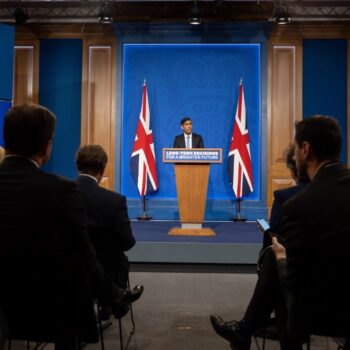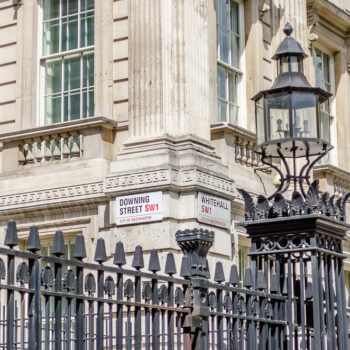Today’s report from the Government’s independent climate change advisors shows a dramatic decline in progress towards clean, comfortable and cheap-to-run buildings in the UK.
Buildings need to emit almost no carbon by 2050 to meet the UK’s climate targets. The Committee on Climate Change (CCC) says that the rate of insulation in homes has fallen by 90% since 2012, and that just 4% of heat used in UK buildings is low carbon [1].
There are opportunities to reduce carbon emissions and energy bills everywhere in the built environment [2]. Household energy bills are already £490 lower than they would have been without efficiency improvements undertaken since 2004 [3]. Maximising the opportunity to save energy and reduce emissions could save every household and small business £100s more. The Government’s fading energy cost cap proposals were estimated to save each household £100 whilst doing nothing to reduce carbon emissions.
Responding to the CCC’s report, Pedro Guertler, Senior Policy Advisor at E3G said:
“The shocking revelation from this report is that insulation levels have crashed by 90% since 2012. Rather than focus on the UK’s future – the Government’s 2030 carbon reduction plan is already a year overdue – the Government has in recent months solely tinkered with sticking plaster solutions to reducing energy costs while investors and consumers are left in the lurch.
“Since improved energy and carbon efficiency is the most cost effective way to decarbonise buildings and reduce energy bills the Government has been shooting itself in the foot. It must now launch a major new heat and energy efficiency infrastructure programme. It must make sure its review of energy costs and its industrial strategy can support it. This can save households and businesses serious money and boost UK growth whilst playing a critical role in getting us back on track with our carbon targets.”
At the report’s launch, new BEIS Minister of State Claire Perry argued that the UK must retain its prominent role in global climate change, because the world looks to it for international leadership, and will do so even more following the decision of the US to leave the Paris Agreement. The Committee Chairman Lord Deben noted that we cannot ignore the direction of movement on climate change, and the UK should be more positive domestically and internationally on what it has achieved so far, rather than worry solely about what still needs to be done, to give momentum and enthusiasm to future efforts. But there are serious challenges ahead – notably in reducing emissions from other sectors, not just electricity generation, which has delivered most of the UK’s emissions reductions to date.
Matthew Bell, the out-going CCC chief executive, highlighted three immediate challenges to the UK’s efforts on tackling climate change: there have been no new significant polices in the last year; the policies introduced in 2008, as part of the Climate Change Act, will end around 2020; and the government will now be preoccupied with Brexit.
Commenting Joseph Dutton, Policy Advisor at E3G, said:
“We are entering a crucial phase for UK climate change policy. With existing policies ending by the end of the decade, the government needs to act now to ensure that no policy gaps emerge that could derail the UK’s climate change efforts. But resources in government and an already-strained civil service will be diverted to Brexit and establishing new legal frameworks after we leave the EU. The government needs to ensure that the UK maintains the same or higher regulatory standards when we do leave, as this regulation will be crucial for meeting our binding emissions reduction targets, but also ensuring wider environmental and ecosystem protection.”
ENDS
Notes to Editors
[1] The Committee on Climate Change (CCC) today published its annual progress report to Parliament on greenhouse gas mitigation. [2] E3G analysis, estimate of energy saving potential in UK housing stock
i Lofts with less than or equal to 125mm insulation present.
ii The majority of technical potential here is for replacing pre-2002 double-glazing with more efficient windows.
iii ‘Other fabric measures’ encompasses the opportunities for insulated doors, reduced infiltration measures, and (improved) hot water tank insulation.
iv Covers opportunities to switch incandescent to compact fluorescent, and halogens to LEDs.
v Opportunities for replacement with A+++ washing machines, A-rated tumble driers, and A+ dishwashers
[3] CCC (2017) Energy Prices and Bills – impacts of meeting carbon budgets [4]E3G is an independent climate change think tank operating to accelerate the global transition to a low carbon economy. E3G specialises in climate diplomacy, climate risk, energy policy and climate finance. [5] In 2016, E3G was ranked the number one environmental think tank in the UK by the Go To Think Tank Index, third in Europe and fifth in the World.

